
KDKA - BCHS' Richard Garland spoke with KDKA's Lynne Hayes-Freeland about the factors that are contributing to a rise in violence among youth in Pittsburgh.
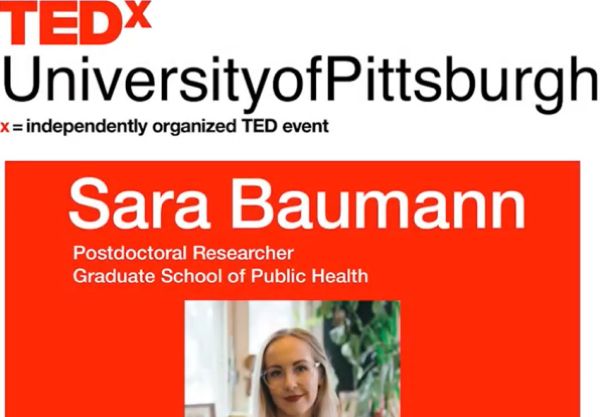
BCHS' Sara Baumann is a mixed-methods researcher harnessing participatory, arts-based tools to study mental health and reproductive health issues. She was living in Nepal in 2015 when a 7.9 magnitude earthquake struck, killing close to 9,000 people and displacing half a million. Watch the recording, where Sara talks about the community art that rose from the aftermath of the tragic and traumatic event.
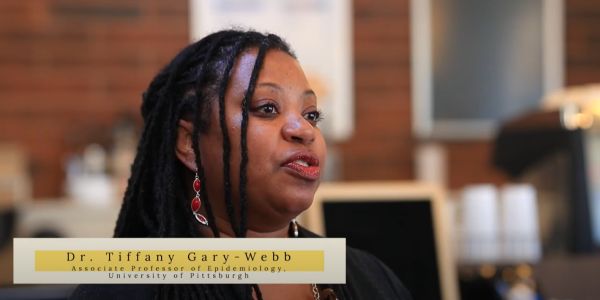
"The Hill District and Homewood are similar and different in various ways. They're similar in the sense that they've been relatively stable over time and they have predominantly Black populations but they have very different histories overtime," explains EPI's TIffany Gary-Webb, assocaite dean for diversity and inclusion and associate director of the Center for Health Equity in this video from a RAND Corporation series.
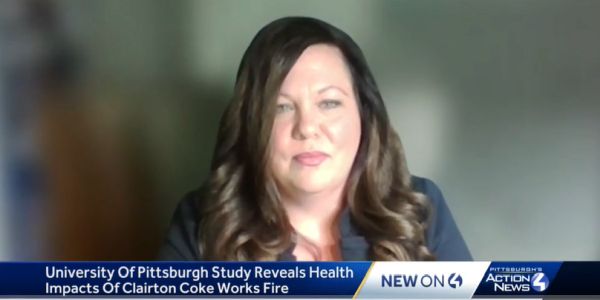
WTAE - Brandy Bywra-Hill (EOH '22) was lead author on a recent study in collaboration with ACHD that recounts the impact of the Christmas Eve 2018 fire that destroyed the pollution controls of the U.S. Clairton Coke Works. "This is the type of data that helps shape policy about air emissions, factory emissions, public health - all sorts of things," said Hill.
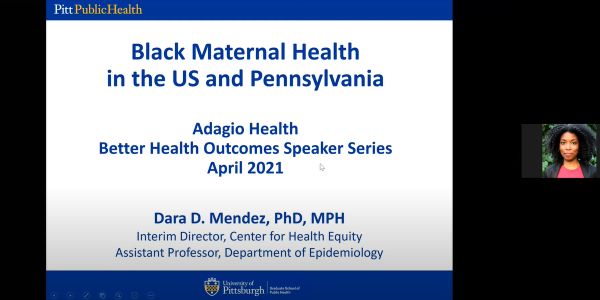
In observance of Black Maternal Health week, EPI's Dara Mendez presented Black Maternal Health in Pennsylvania and the U.S., presenting data, discussing the implcations of racism and next steps. Open for the full recording.
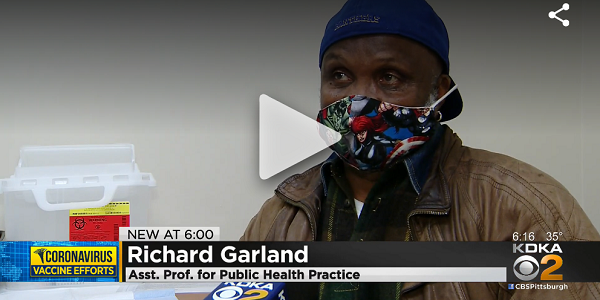
WDKA CBS NEWS — In a multipronged effort to prioritize the biggest impact among Phase 1A groups, UPMC vaccinated community advocates to fight vaccine hesitancy in vulnerable, often minority, populations, where COVID-19 has had a disproportionately terrible effect.BCHS's Richard Garland got the vaccine. “It was like taking a flu shot for me,” said Garland who is part of the COVID-19 Black Equity Coalition. “The more I look at the numbers in the...
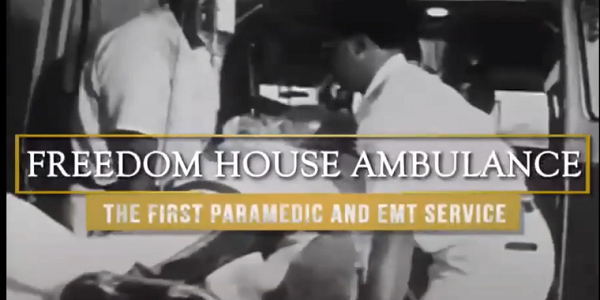
Freedom House Enterprises ambulance services was a pioneering program designed to be representative of the community it served (Pittsburgh's Hill District), provide a pathway for upward mobility, and address a severe disparity in pre-hospital care. The collaboration between Phil Hallen, Peter Safar, and James McCoy Jr., developed into a groundbreaking endeavor that shaped modern EMS.
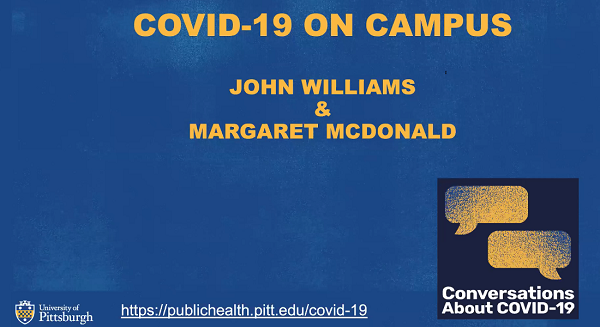
Drs. John Williams and Margaret McDonald share an update on the current COVID conditions on campus and reflect on their insider experiences serving on Pitt’s Healthcare Advisory Group during this public health crisis.
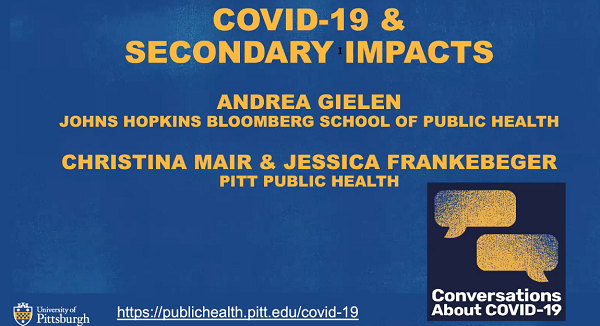
The stay-at-home and social distancing COVID-19 mitigation orders drastically restricted people’s physical movements and access to businesses, causing myriad secondary impacts on the public’s health. Dr. Andrea Gielen discusses how the pandemic has affected injury risks due to changes in lifestyles and transportation. Dr. Christina Mair and BCHS PhD student Jessica Frankebeger share Allegheny County results from a survey addressing resident’s ro...
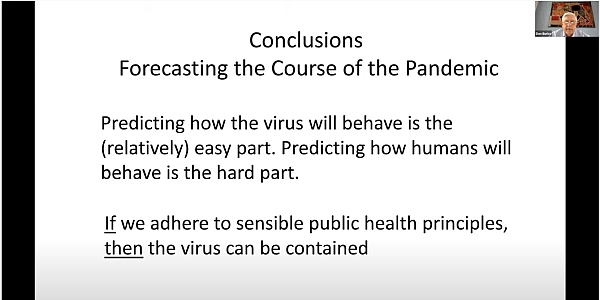
What we have learned during the summer of 2020 that puts SARS-CoV-2 into perspective with other emerging viruses and explores the current state of COVID-19 forecasting for the next few months. IDM's Amy Hartman talks what we know (and don't know) about SARS-CoV-2 and EPI's Donald Burke discusses the epidemiological and environmental factors that will shape the likely phases of the epidemic in our region.
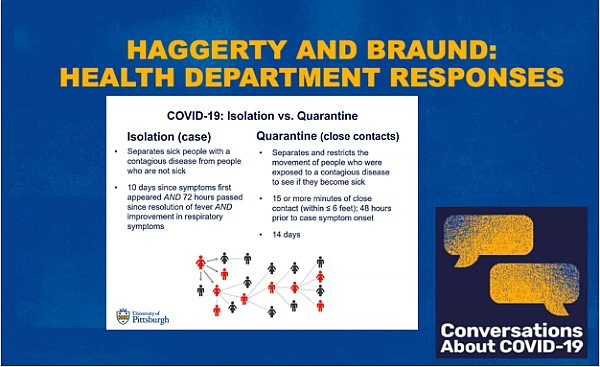
EPI's Catherine Haggerty and HPM's Wendy Braund lead a conversation about the health department response to COVID-19 at the local and state levels. Haggerty starts the conversation with a discussion of the approaches, impact, and challenges of containment and mitigation efforts at the county level. Braund continues the conversation by comparing and contrasting the response at the state level.
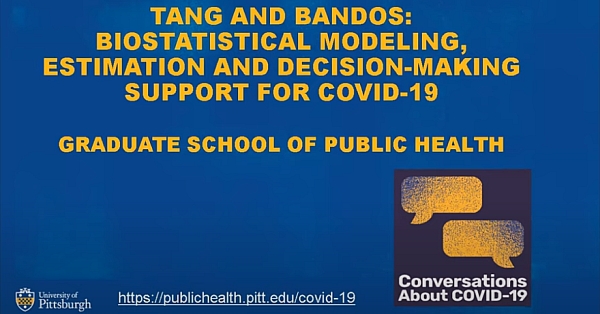
Biostatistical modeling, estimation, and decision-making support have been playing an important role in responses to COVID-19 challenges. Lu Tang and Andriy Bandos will discuss statistical considerations involved in modeling the epidemic progression and in the use of COVID-19 related tests for estimation and decision making support.
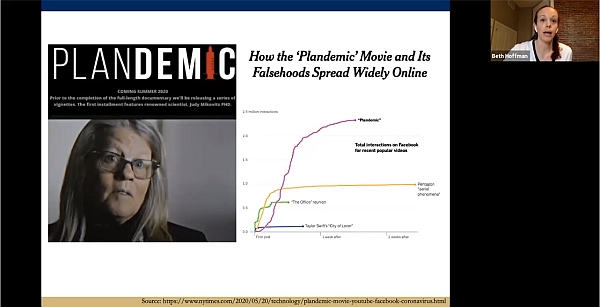
Since the initial outbreak of the novel coronavirus COVID-19, social media misinformation appears to be spreading faster than the virus itself, prompting the WHO to declare an "infodemic" of misinformation. During this conversation, BCHS's Steve Albert and Beth Hoffman (BCHS '19 '23) will discuss how COVID-19 related misinformation fits within the framework of science denialism, and provide strategies to help public health professionals and othe...
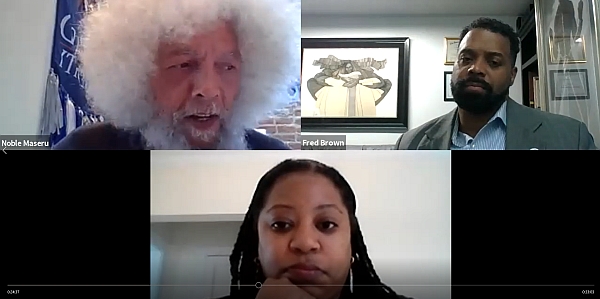
“When the pandemic first started, there were many of us that were worried that the toll on underserved populations, particularly African Americans where I focus, would bear a disproportionate burden of COVID-19,” said EPI’s Tiffany Gary-Web. "So I started locally asking for data by race and trying to understand if what was going to happen in our area…we’re not having the same access to testing. This is just one example.”
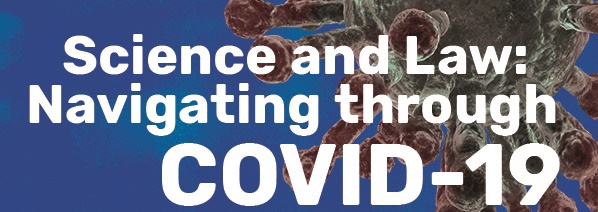
COVID-19 is a highly infectious coronavirus that jumped from an animal host to humans in late 2019 and subsequently became a pandemic. With so much information scattered over the internet, where can reliable information be found? Faculty experts in the fields of biology, medicine, law, and informatics Jeremy Martinson, Wendy Braund, Elizabeth Van Nostrand, and Wilbert Van Panhuis each explores COVID-19 from their unique perspective.
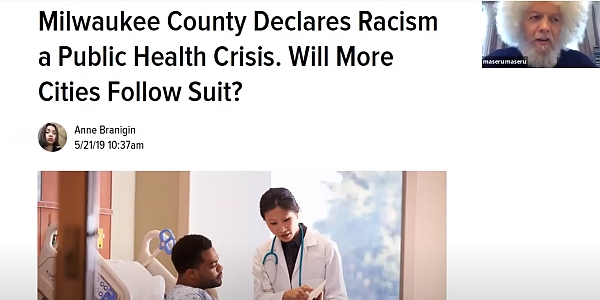
In the first William "Bill" Jenkins Lecture at the Department of Graduate Public Health in the College of General Medicine at Tuskegee University, CHE's Noble Maseru spoke of Jenkins' committment to social justice through workforce development and tangentially addressed bioethics. "We don't see COVID-19 as an isolated moment [and we need to be] addressing and seeking in what took place in our history so that we can move forward and not make the ...

On April 9, CHE Director Noble Maseru presented facts, best practices, and risks to the Black community, in addition to talking about equity and life expectancy in Pittsburgh by neighborhood. View the slides or watch the presentation.
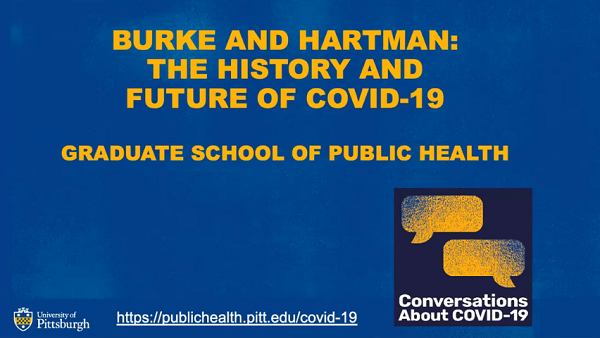
COVID-19 is one of three novel coronavirus outbreaks in the past 20 years that originated in animals. How is the current outbreak similar and different from the previous ones? What course will COVID-19 take in Pennsylvania? IDM's Amy Hartman puts the current outbreak in perspective with what we know (and don’t know) about SARS-CoV-2. EPI's Donald Burke discusses the epidemiological and environmental factors that will shape the likely ph...
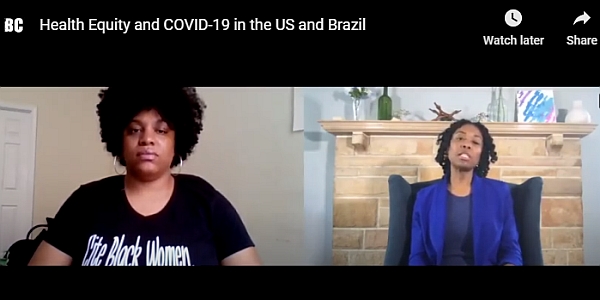
EPI's Dara Mendez is health equity editor for Block Chronicles, a national web-series and online magazine profiling educators, artists, researchers, and community organizations on Latinx studies, urban education, health equity, and arts and culture. In this video, she interviews Sharelle Barber, scholar-activist and faculty member at the Drexel University Dornsife School of Public Health. "This is not really a surprise to those of us who study r...
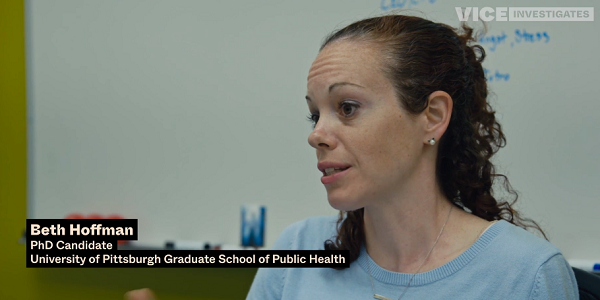
HULU - Available now on the streaming service, Vice Investigates “Anti-Vaxx Fever” explores the growing anti-vaccine movement. The documentary features in-depth looks at the varied work of professor Mark Roberts and of student Beth Hoffman (BCHS ’19 ’23). Each uses system science methods to investigate the dangers of this movement, generating compelling images that are powerful tools for communicating science to the public.